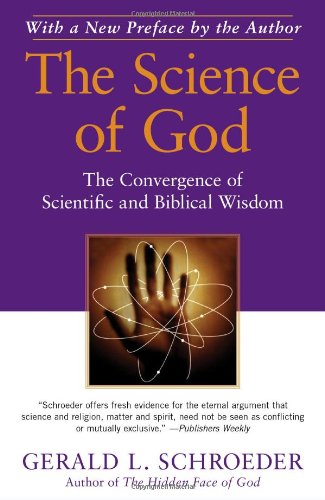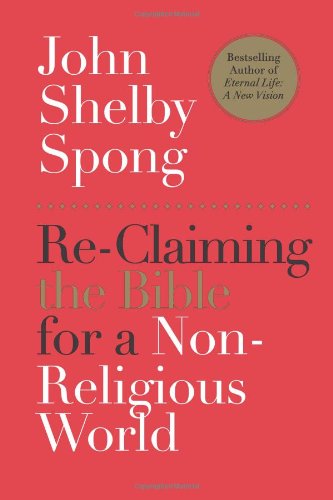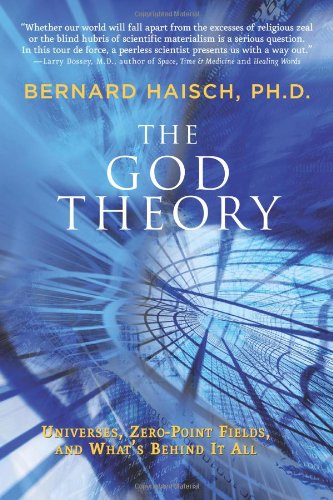Genesis 13:18, The Patriarchs of Israel
Then Abram removed his tent, and came and dwelt in the plain of Mamre, which is in Hebron, and built there an altar unto the LORD.
//We have three great patriarchs in the history of Israel:
[1] Abraham, who came from the land of Ur, is the first and greatest. He was later identified with a shrine in Hebron, what is now Palestine.
[2] Isaac is the son of Abraham, the second of the Jewish patriarchs, and is identified with a shrine at Beersheba, southwest of Jerusalem.
[3] Jacob, the son of Isaac and the third patriarch was identified with a shrine at Bethel. When kingdom of Israel later split in two (separating the south from the north), Bethel would belong to the northern half.
We have no historical evidence at all for these three men. No way to know if they ever really existed. Thus, the identification with three shrines in three different locations opens up the possibility that the “patriarchs” were not related at all, but were three Canaanites, leaders or holy men, whose shrines and stories later became intertwined when Israel invaded and conquered the land. The purpose in incorporating these shrines and writing them into the Israelite history was then probably to justify the conquest of Canaan by claiming divine right to the land; that God had promised the land to the forefathers of Israel hundreds of years beforehand.
Book review: The Science of God
by Gerald L. Schroeder
★★★
This book has sold a lot of copies and generated a lot of discussion since its publication in 1997, but it really just didn’t do it for me. Schroeder’s premise is that Bible thumpers and secular scientists need to put their heads together, compromise a little here and there, and realize that the Bible story goes hand-in-hand with 20th-century scientific discovery.
That means the seven-day creation story is true (Einstein’s theory of relativity helped us out a little on this topic) by measuring time from God’s perspective. The cosmic clock of Genesis is based on the characteristics of cosmic background radiation. The dinosaurs were created on day five, a day that lasted roughly a half billion years. The flood really happened when the Bible says it did, but it wasn’t a universal event. Before the flood, people lived extraordinarily long lives, because the climate was less demanding. You get the idea.
I agree with Schroeder that the conditions of our universe and our own little world are incredibly fine-tuned, and thus a bit difficult to explain. Schroeder quotes Weinberg’s famous calculation that if the energy of the big bang fifteen billion years ago were different by one part out of 10 to the 120th power, there would be no life anywhere in the universe. It’s as if the universe is tuned for life from its inception. There have been a number of thought-provoking responses to Weinberg’s conclusion, but it’s still difficult for me to put out of my mind the idea that something really special has happened for our benefit … something quite carefully planned.
It’s a puzzle without easy explanation, alright. I just don’t get why anyone would choose the Bible’s myths as the foundation for their explanation. As carefully as Schroeder has put his theory together, it still just feels contrived and overly complex to me. If Schroeder wants believers and scientists to hold hands and sing Kum Ba Yah, he’s going to need to write down to the non-scientist level. But why bother? Don’t the earliest Bible stories make a whole lot more sense as theological or political or moral treatises than as history books? Why not let religion be religion and science be science?

2 Timothy 2:17-18 Has the Resurrection Already Happened?
And their word will eat as doth a canker: of whom is Hymenaeus and Philetus; Who concerning the truth have erred, saying that the resurrection is past already; and overthrow the faith of some.
//I was asked today what this verse is all about, and how anybody could possibly believe the resurrection had already happened. The fact is, there were a number of versions of Christianity in the first couple centuries, and this is one of the things Christians argued about.
Paul believed the general resurrection had begun. He argues his case quite simply in his first letter to the Corinthians. Do you believe Jesus has risen from the dead? Then the resurrection has begun. Do you believe the resurrection has not begun? Then Jesus couldn’t have risen from the dead. Paul cannot imagine that Jesus’ resurrection could be an isolated event. He describes Jesus as the “first fruit” … that is, the first of many to rise into a glorious new resurrection body.
So did Paul believe others had been resurrected, too? Possibly, or more likely he felt he was living on the cusp on the general resurrection. You see, another of the things early Christians argued about was what the resurrection body is like. Some believed Jesus was resurrected in body; see Matthew and Luke for evidence of this belief. The final chapter in John and the last section of Mark also portray this physical resurrection, though neither is authentic to the original writing (both stories were added at a later date, apparently to bolster belief in bodily resurrection).
Paul didn’t see it this way. He felt he saw the resurrected Jesus just as clearly as anyone else did, and what he saw was no physical body. He saw a light from heaven. A spiritual body. Paul is adamant that the new, resurrected body, whether of Jesus or of any other believer, is not “of the flesh.”
Given that Christians could not even agree on what the resurrected body of Jesus was like, it’s hardly surprising that arguments arose in the first couple centuries of Christianity about what the general resurrection was like, whether it had begun, and what the new messianic age meant.
Book review: Re-Claiming the Bible for a Non-Religious World
by John Shelby Spong
★★★★★
Could this be Spong’s best yet? Perhaps not, his books are all so powerful, but it’s definitely my new favorite. I’ve actually been looking for precisely this sort of book, so I was really excited to find it—authored by one of my favorite writers, no less!
Spong goes book-by-book in pretty much chronological order through the Bible, explaining scholars’ best guesses at each book’s origin (place, time, authorship) and the historical atmosphere out of which they were written. The idea for this collection sprang from a series of lectures Spong was invited to give, beginning in the summer of 2006, about how various Biblical books came to be written and regarded as scripture. Much of the information here was known to me already, but there was a host of new insights as well. I’ve got yellow highlighter marks all over the book! Here are some of the more interesting discussions you’ll find:
[1] The formation of the Torah, the first five books of the Bible. You’ll learn more about the Documentary Hypothesis, and how scholars believe these five books came together, from the four primary sources. Not the most complete explanation, but surely the easiest to understand I’ve ever read.
[2] The “prophetic principle” (you’ll find out you had no idea what a “prophet” is) and the historic background behind the three “books” of Isaiah. Scholars are coming to the conclusion that Isaiah had not just two authors, but at least three.
[3] The “protest” literature within the Bible, and what stimulated its writing.
[4] The “national mythmakers” who preserved Israel’s history.
[5] The evolution of the Apostle Paul’s beliefs, and how he grew over time from a fiery, apocalyptic preacher into a mellow, thoughtful philosopher.
Of course, you’ll read about the Gospel story, the pastoral influence, the Johannine corpus, it’s all there and it’s all very readable. Highly recommended!

2 Kings 10:30, The Slaughter of Jezreel
The LORD said to Jehu, “Because you have done well in accomplishing what is right in my eyes and have done to the house of Ahab all I had in mind to do, your descendants will sit on the throne of Israel to the fourth generation.”
//Religion is often evoked as a means of providing meaning to life’s mysteries. We find a $100 bill on the street? God knew we needed the money. We lose that $100 bill later? God took it back to test us. Whether in reward or punishment, “God” is the explanation assumed when none other exists.
Bible writers were not immune to this tendency, either. Consider the house of Jehu, king of Israel. Jehu’s claim to fame may be his slaughter of the house of Ahab, in Jezreel. Jehu demanded that the elders and officials in Jezreel bring to him the heads of the seventy children of king Ahab. In fear, Jezreel followed Jehu’s orders, and Jehu dumped the seventy heads at the city gate, to serve as evidence that God was against Ahab. Then Jehu went and slaughtered everyone in Jezreel that remained of the house of Ahab.
Jehu’s descendents continued to reign after his death for four more generations: Jehoahaz, Jehoash, Jereboam II, and Zachariah. But then Shallum, son of Jabesh, “conspired against Zachariah, and smote him before the people, and slew him, and reigned in his stead.”
Now, the book of Kings sees this continued kingship through the decedents of Jehu as evidence of God’s approval. Read again today’s verse; Jehu did what was right, so God rewarded him. But the prophet Hosea sees the same event, the slaughter of Jezreel, in a different light. Hosea sees the abrupt end of Jehu’s kingship four generations later, and of Israel itself, as evidence that God disapproved of Jehu:
Hosea 1:4, Then the LORD said to Hosea, “Call him Jezreel, because I will soon punish the house of Jehu for the massacre at Jezreel, and I will put an end to the kingdom of Israel.
So, did God approve or disapprove of Jehu? Did God indicate his approval through reward or his disapproval through destruction? Different points of view render different conclusions.
Book Review: The God Theory
by Bernard Haisch
★★★★★
Haisch is an astrophysicist with a discomfort regarding the idea of a meaningless universe, and a gift for explaining scientific theory in simple terms. He was raised a strict Catholic, but lasted through only a year of Seminary, after which his interests turned to science.
Although he outgrew fundamentalist Christian beliefs, he’s never been able to embrace the impersonal universe pictured by most of his fellow scientists. Science today is based on the premises of materialism (the belief that reality consists solely of matter and energy), reductionism (the idea that complex things can be explained by breaking them down into constituent parts) and randomness (the conviction that all natural processes follow the laws of chance). Haisch begs to differ, arguing that the only logical conclusion of these assumptions is that an infinite number of universes exist, which he finds nonsensical and “morally repugnant.” He accepts current scientific theory as a given—such as the Big Bang, a 4.6 billion-year-old-earth, and evolution—but simply feels the evidence argues against random universes, and leans more toward an “infinite conscious intelligence.” This intelligence he labels God, for lack of a better name.
The God Theory, then, is Haish’s attempt to answer fundamental questions about human nature in the light of modern science. It’s based on the simple premise that we are, quite literally, one with God, and God is, quite literally, one with us. His discussion leads to some fascinating and important corollaries:
[3] The God of his theory will never punish us (forget about heaven and hell) because that would ultimately amount to self-punishment.
Haisch touches on cosmology and the inflation theory, the consciousness debate, the implications of quantum mechanics, the “zero-point field inertia hypothesis” (that one’s a mouthful) and more, but never treads where an inquisitive non-scientist can’t follow, as he lays out his argument for a purposeful universe.
I found the book thought-provoking and a lot of fun.

Luke 24:7, Why three days in the grave?
The Son of Man must be delivered into the hands of sinful men, be crucified and on the third day be raised again.
//If you’ve ever wondered at the significance of “three days,” you may find meaning in The Midrash on Psalm 22 to Esther. You may remember her words as she prepared to meet the king: “Go, gather together all the Jews who are in Susa, and fast for me. Do not eat or drink for three days, night or day. I and my maids will fast as you do. When this is done, I will go to the king, even though it is against the law. And if I perish, I perish.”
Says the Midrash, the reason for three days is for the sake of Israel. “Why three days? Because the Holy One—blessed be he!—never leaves Israel in anguish for more than three days.” A number of other Bible passages agree:
Genesis 22:4, On the third day Abraham looked up and saw the place in the distance. Abraham had set out on a three-day journey, the end of which would end in the sacrifice of his son.
Genesis 42:17, And he put them all in custody for three days. Joseph, in Egypt, has accused his brothers of being spies, and imprisoned them.
Exodus 15:22, Then Moses led Israel from the Red Sea and they went into the Desert of Shur. For three days they traveled in the desert without finding water.
2 Kings 20:5, “Go back and tell Hezekiah, the leader of my people, ‘This is what the LORD, the God of your father David, says: I have heard your prayer and seen your tears; I will heal you. On the third day from now you will go up to the temple of the LORD. Hezekiah was ill, at the point of death, and was told he must wait three days before God would heal him.
Joshua 2:16, Now she had said to them, “Go to the hills so the pursuers will not find you. Hide yourselves there three days until they return, and then go on your way.” Said by Rahab, to the men she helped escape.
Jonah 2:1, From inside the fish Jonah prayed to the LORD his God. I needn’t remind you that Jonah spent three days there.
Hosea 6:2, After two days he will revive us; on the third day he will restore us, that we may live in his presence.
Book review: The Secret Sect
★★★★★
Around the year 1897, William Irvine, a preacher of the Faith Mission in Scotland and Ireland, received a revelation as he was reading the Gospel of Matthew, chapter ten:
[F]reely ye have received, freely give. Provide neither gold, nor silver, nor brass in your purses, nor scrip for your journey, neither two coats, neither shoes, nor yet staves: for the workman is worthy of his meat. And into whatsoever city or town ye shall enter, enquire who in it is worthy; and there abide till ye go thence.
Following these teachings as best he could, Irvine struck out on his own, founding a new movement based upon his vision of a penniless, traveling ministry, as he imagined Jesus himself to have taught in the first century. Within a few years, a number of house churches had been established, and the movement began to spread to other lands. Observing that the first apostles carried no name other than that of Jesus, ministers insisted on remaining a nameless sect outside the public eye (hence the book’s title, The Secret Sect). The movement nevertheless collected several nicknames, including Cooneyites (named after one of the of the first preachers to join the movement), Dippers (from Irvine’s public baptismal rituals), and 2x2s (based upon the practice of ministers traveling two and two together, as was often the habit of first-century Christian evangelists).
Whether by deliberate misdirection or by accidental development, members of the sect quickly came to believe they could trace their origins back to the shores of Galilee, and that they were the only people on earth who were saved. All other groups, Christian or not, were apparently deceived by Satan. Irvine, himself, was excommunicated after a number of years, and his role in the foundation of the movement was suppressed. Members of the 2x2s, convinced of God’s approval and their absolute discovery of God’s true way, coined their own name for the movement: “the Truth.” The name stuck, and continues to be the most commonly used name by insiders.
Today, more than 100 years later, membership estimates run between 200,000 and 600,000 worldwide, and the movement could hardly be called penniless anymore. A number of books have been written about this group, some more friendly than others (a few openly call the sect a cult). But this is the book that started the ball rolling, written way back in 1982. It’s a fair, carefully researched historical account of how this Christian sect came into existence.
My interest in the book? It’s my heritage. Yes, I grew up in “the Truth,” though I’m no longer a member. The 2×2 movement is, in my opinion, wholesome and fulfilling … as much as any fundamentalist, exclusivist religion ever can be. Members meet reverently for fellowship in small groups in homes, and continue to take turns housing a homeless, travelling ministry.
I doubt this book would be of interest to anyone not in some way connected to “the Truth.” But for those of us who are or were, this is one of the most important books we’ll ever read. For that reason alone I award it five stars.
It’s unfortunately out of print. As of this writing, used copies on Amazon sell for between $70 and $213.
————-
NOTE: I’ve been notified that the book is NOT out of print, and can be purchased here for $16.95.
RIS Website: http://workersect.org/2×206.html

Deuteronomy 32:43, Was Israel Polytheistic?
“Praise his people, O you nations; for he avenges the blood of his servants, and takes vengeance on his adversaries, and makes expiation for the land of his people.”
//There’s a rather heated argument between conservative and liberal Christians as to whether Judaism was monotheistic from their very beginning, or whether the scriptures hint that Israel’s earliest traditions were polytheistic. A number of archaeological finds suggest worship (or at least recognition) of multiple gods in Israel, and a number of verses in the Bible speak of “gods” or “sons of God” or “the council of gods.” Not the least among these is God’s own jealous directive in the ten commandments that his people worship no other gods besides him. It seems Yahweh (Jehovah) was not considered the only god, he was merely the patron god of Israel, considered by them to be the High God.
Enter today’s quote. It’s a verse of praise for the Hebrew god, as quoted from the RSV (Revised Standard Version), and it matches pretty closely to what you may be familiar with in the Kings James Version. But the discovery of the Dead Sea Scrolls in the 20th century has shaken our world. Before this discovery, the oldest Hebrew manuscripts of the Bible wereMasoretic texts dating to 10th century CE. The biblical manuscripts found among the Dead Sea Scrolls push that date back over 1,000 years to the 2nd century BCE! That’s 1,000 years closer to the original words of the Hebrew Bible.
Consequently, when the NRSV (New Revised Standard Version) was published in 1989, this verse was corrected to reflect its more original wording, and now it reads very differently:
worship him, all you gods!
For he will avenge the blood of his children,
and take vengeance on his adversaries;
he will repay those who hate him,
and cleanse the land for his people.
Guest Post: Has God Become Abstract?
Shortly after reading Banned Questions About the Bible by Christian Piatt and others, I contacted Christian asking if I could borrow a page of the book as a guest post. I had my eye on this entry by Jarrod McKenna.
After pointing out that God is portrayed as less interventionist in the New Testament than in the Old, and has since become even more abstract, the question is asked whether this is a good thing or a bad thing?
//This question reveals two worldviews that bastardize the gospel, giving birth to cheap imitations. And as Ammon Henacy reminded us, “When choosing the lesser of two evils we must not forget they are both evil.” The two evils are following:
[1] God is elsewhere. This would explain the amount of evil, injustice, misery, and war in the world. God created all, but took some time off afterward, holidaying somewhere nicer, maybe by a celestial pool, while we suffer. The founders of the United States believed in a form of this called Deism. In this worldview, Jesus might be the deity popping back, seeing everything has gone to crap and then saying, “Believe in me and I’ll take you elsewhere, too.” The early church called this heresy “Gnosticism.” In this worldview, God is abstract because God is a secret “get-out-of-creation-free” card.
The other popular option that equally lacks revolutionary energy and impulse of the scriptures is that God is not far off because:
[2] God is everything. Now, if you’ve grown up in a worldview in which God is always absent, where spirituality has nothing to do with creation, and where your body was always seen as bad, this might sound like a better option. Sometimes called “pantheism,” it leaves us with no cosmic critique of the evil of injustice while affirming the goodness and sacredness of creation. Wars, empires, and violence in creation are all just a part of “God/Gaia/the Divine.” Jesus just shows up to “enlighten us.”
God is redeemer is the biblical vision that, in nuanced and elegant ways, radically affirms the goodness of the web of creation while providing an equally radical critique of all violence and injustice that has colonized it as an alien force. As Creating, Sustaining and Redeeming, the Trinity is dynamically involved in history and has acted decisively in the Incarnation, to heal the brokenness we all know, with the wholeness we sometimes feel. This will not leave us with “abstract ideas” but with an invitation to action, for by grace we can be part of God’s “intervention” of the Kingdom.

















 354 Circles
354 Circles
 603 Goodreads Friends & Fans
603 Goodreads Friends & Fans

 Hello! I'm an author, historical Jesus scholar, book reviewer, and liberal Christian, which means I appreciate and attempt to exercise the humanitarian teachings of Jesus without getting hung up on any particular supernatural or religious beliefs.
The Bible is a magnificent book that has inspired and spiritually fed generations for thousands of years, and each new century seems to bring a deeper understanding of life’s purpose. This is true of not only Christianity; through the years, our age-old religions are slowly transforming from superstitious rituals into humanitarian philosophies. In short, we are growing up, and I am thrilled to be riding the wave.
I avidly read all thought-provoking religion titles. New authors: I'd love to read and review your book!
Hello! I'm an author, historical Jesus scholar, book reviewer, and liberal Christian, which means I appreciate and attempt to exercise the humanitarian teachings of Jesus without getting hung up on any particular supernatural or religious beliefs.
The Bible is a magnificent book that has inspired and spiritually fed generations for thousands of years, and each new century seems to bring a deeper understanding of life’s purpose. This is true of not only Christianity; through the years, our age-old religions are slowly transforming from superstitious rituals into humanitarian philosophies. In short, we are growing up, and I am thrilled to be riding the wave.
I avidly read all thought-provoking religion titles. New authors: I'd love to read and review your book!
 Hi! While Lee writes the articles and reviews the books, I edit, organize, and maintain the blog. The views expressed here are Lee's but I'm his biggest supporter! :-)
Hi! While Lee writes the articles and reviews the books, I edit, organize, and maintain the blog. The views expressed here are Lee's but I'm his biggest supporter! :-)
Connect With Me!